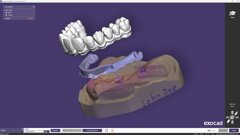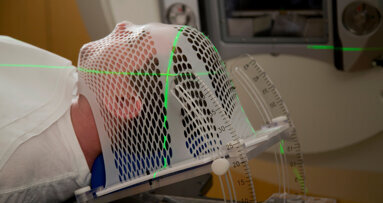PHILADELPHIA, U.S.: The dangers of smoking are well known, and in a new study, researchers have pinpointed it as being a major factor in developing head and neck squamous cell carcinoma, the sixth most common cancer in the world. The study was conducted by researchers from Thomas Jefferson University and highlights, among other things, how cigarette smoke reprograms cells.
“Cigarette smoke changes the metabolism of cells in head and neck squamous cell carcinomas, making the tumors more efficient as an ecosystem to promote cancer growth,” said lead author Dr. Ubaldo Martinez-Outschoorn, associate professor in the Department of Medical Oncology and a researcher at the Sidney Kimmel Cancer Center at Jefferson.
In the study, researchers exposed fibroblasts to cigarette smoke and found that the smoke increased a particular type of metabolism called glycolysis, which produces metabolites that are used by nearby cancer cells to help fuel their growth. According to the researchers, the cancer cells developed certain features of malignancy, such as increased mobility and resistance to cell death.
Dr. Joseph Curry, associate professor in the Department of Otolaryngology/Head and Neck Surgery and a member of the research team, said that, because a healthy immune system is responsible for recognizing and attacking malignant cells, it will now be interesting to learn how these altered fibroblasts might influence the efficacy of current immunotherapies. “Our finding is part of a growing interest in understanding the metabolic relationship between different cells in the tumor microenvironment, and how we can target them to improve patient outcomes,” explained Curry.
The study, titled “Cigarette smoke induces metabolic reprogramming of the tumor stroma in head and neck squamous cell carcinoma,” was published online on June 25, 2019, in Molecular Cancer Research, ahead of inclusion in an issue.
Tags:
AUGUSTA, Ga., U.S.: For a group of researchers from the Medical College of Georgia at Augusta University, the enzyme ecto-5’-nucleotidase (CD73) is going ...
LONDON, England: Treatment of head and neck cancer is notoriously complex, and only few advances have been made in the last 20 years. Last month, however, ...
ATLANTA, U.S.: The issue of e-cigarettes and their health risks has always been contentious. In a recent study, researchers from Georgia State University ...
LEIPZIG, Germany: Head and neck cancer is the sixth most common cancer worldwide and results in approximately 450,000 deaths per year. As a result of ...
NEW YORK, US: Studies have repeatedly shown that oral bacteria can contribute to periodontal disease. Now, researchers have sought to examine whether there ...
ALEXANDRIA, Va., U.S.: This year marks the centennial of the Journal of Dental Research (JDR). To celebrate, JDR is featuring a yearlong monthly ...
ORADEA, Romania: Ongoing research continues to illuminate the plethora of ways in which oral and systemic health influence each other. While odontogenic ...
BALTIMORE, U.S.: In a recent study, scientists from the Johns Hopkins University School of Medicine investigated whether a mouthrinse to detect human ...
CHAPEL HILL, N.C., US: Head and neck squamous cell carcinoma (HNSCC) is a global health concern, ranking as the sixth most common malignancy worldwide. Poor...
ABERDEEN, Scotland: Head and neck cancer is a highly debilitating disease that has profound consequences for oral function, nutrition, communication and ...
Live webinar
Tue. 3 March 2026
11:00 am EST (New York)
Dr. Omar Lugo Cirujano Maxilofacial
Live webinar
Tue. 3 March 2026
8:00 pm EST (New York)
Dr. Vasiliki Maseli DDS, MS, EdM
Live webinar
Wed. 4 March 2026
12:00 pm EST (New York)
Munther Sulieman LDS RCS (Eng) BDS (Lond) MSc PhD
Live webinar
Wed. 4 March 2026
1:00 pm EST (New York)
Live webinar
Fri. 6 March 2026
3:00 am EST (New York)
Live webinar
Tue. 10 March 2026
4:00 am EST (New York)
Assoc. Prof. Aaron Davis, Prof. Sarah Baker
Live webinar
Tue. 10 March 2026
8:00 pm EST (New York)
Dr. Vasiliki Maseli DDS, MS, EdM



 Austria / Österreich
Austria / Österreich
 Bosnia and Herzegovina / Босна и Херцеговина
Bosnia and Herzegovina / Босна и Херцеговина
 Bulgaria / България
Bulgaria / България
 Croatia / Hrvatska
Croatia / Hrvatska
 Czech Republic & Slovakia / Česká republika & Slovensko
Czech Republic & Slovakia / Česká republika & Slovensko
 France / France
France / France
 Germany / Deutschland
Germany / Deutschland
 Greece / ΕΛΛΑΔΑ
Greece / ΕΛΛΑΔΑ
 Hungary / Hungary
Hungary / Hungary
 Italy / Italia
Italy / Italia
 Netherlands / Nederland
Netherlands / Nederland
 Nordic / Nordic
Nordic / Nordic
 Poland / Polska
Poland / Polska
 Portugal / Portugal
Portugal / Portugal
 Romania & Moldova / România & Moldova
Romania & Moldova / România & Moldova
 Slovenia / Slovenija
Slovenia / Slovenija
 Serbia & Montenegro / Србија и Црна Гора
Serbia & Montenegro / Србија и Црна Гора
 Spain / España
Spain / España
 Switzerland / Schweiz
Switzerland / Schweiz
 Turkey / Türkiye
Turkey / Türkiye
 UK & Ireland / UK & Ireland
UK & Ireland / UK & Ireland
 Brazil / Brasil
Brazil / Brasil
 Canada / Canada
Canada / Canada
 Latin America / Latinoamérica
Latin America / Latinoamérica
 USA / USA
USA / USA
 China / 中国
China / 中国
 India / भारत गणराज्य
India / भारत गणराज्य
 Pakistan / Pākistān
Pakistan / Pākistān
 Vietnam / Việt Nam
Vietnam / Việt Nam
 ASEAN / ASEAN
ASEAN / ASEAN
 Israel / מְדִינַת יִשְׂרָאֵל
Israel / מְדִינַת יִשְׂרָאֵל
 Algeria, Morocco & Tunisia / الجزائر والمغرب وتونس
Algeria, Morocco & Tunisia / الجزائر والمغرب وتونس
 Middle East / Middle East
Middle East / Middle East











































To post a reply please login or register